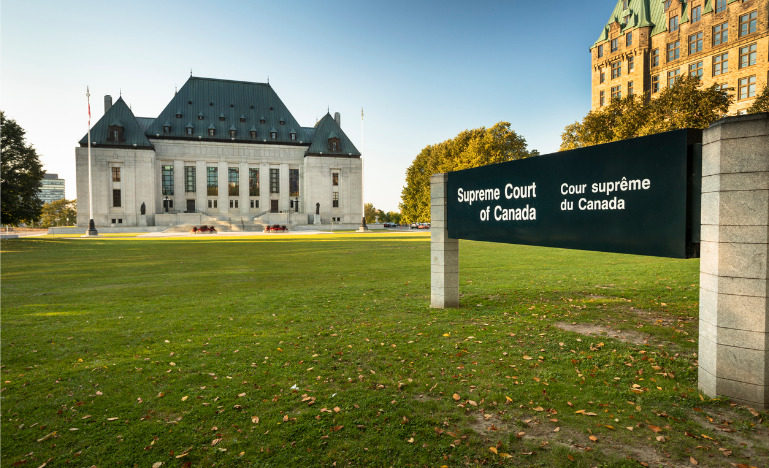Trudeau names Nicholas Kasirer to the SCC
The new Justice from Quebec will take over from Justice Clément Gascon who steps down in September.

On Wednesday afternoon, prime minister Justin Trudeau announced that Justice Nicholas Kasirer of Quebec Court of Appeal would be named to the Supreme Court of Canada when Justice Clément Gascon steps down in September.
“I am happy to announce the nomination of Justice Kasirer to the Supreme Court of Canada,” said Trudeau in a statement. “Canada’s Supreme Court is respected around the world for its strength, independence, and judicial excellence. With his outstanding legal and academic experience, gained over a distinguished thirty-year career, I know Justice Kasirer will be an asset to our country’s highest court.”
Kasirer was appointed to the Quebec Court of Appeal in 2009, and before that was a law professor at McGill University for twenty years, including time spent as dean of the Faculty of Law.
Canadian Bar Association President Ray Adlington congratulates Justice Nicholas Kasirer upon his nomination. “The breadth of his legal knowledge and experience in both Canadian civil and common law traditions will effectively serve Canadian society as our law continues to evolve,” he says.
Kasirer is Trudeau’s third appointment to the Supreme Court of Canada, and the third using an advisory board headed by former prime minister Kim Campbell. Because he is a Quebec justice, additional measures were added to this panel to include input from the government of Quebec. The eight-member panel included two members that were nominated by Quebec’s minister of justice.
The appointment process was also made with the deadline of the fall federal election in mind, given that Gascon’s retirement date is set for after the writs would be drawn up.
“Justice Kasirer has long been regarded as one of Quebec's leading jurists, both in his academic career and as a judge of the Court of Appeal,” says Gib van Ert, former Executive Legal Officer of the Supreme Court of Canada, and now a partner at Miller Thomson LLP in Ottawa and Vancouver.
“He is admired for his judgment, his scholarship, and his ethical compass,” says van Ert. “He's a model judge and a powerful addition to the country's top court.”
On July 25th, members of the House of Commons’ justice and human rights committee, as well as the Senate’s legal and constitutional affairs committee will hold an ad hoc joint session along with MPs who do not have official party status, to ask questions of Kasirer, which will be moderated by a law professor.
While at the Quebec Court of Appeal, Kasirer was on the panel that heard the royal succession case brought forward by law professors Patrick Tailon and Genevieve Motard, for which a judgment has not been rendered after nearly 16 months. If that case is referred to the Supreme Court of Canada, he would not be on the panel to hear it.
Liberal Senator Serge Joyal, who pleaded before Kasirer in that case in February 2018, says that if a decision is not rendered before Kasirer takes his seat at the Supreme Court of Canada, procedure would dictate a new hearing in front of another panel at the Court of Appeal.
“That would mean that we would restart the case at the Court of Appeal level, which will, of course, represent a new delay,” says Joyal.
As chair of the Senate’s legal and constitutional affairs committee, Joyal will attend the July 25th meeting, but not ask questions.
“I will have to recuse myself considering my personal involvement in the [succession] case,” says Joyal.
Eugene Meehan, a former national president of the CBA, who is now a partner at boutique firm Supreme Advocacy LLP in Ottawa, says that the Supreme Court currently has about a dozen appeals with facta filed and ready to be heard, plus a further 23 leaves to appeal granted, and a further 11 appeals as of right ready to be heard.
“This is a busy court,” says Meehan. “It’s a smart thing for the prime minister to appoint a new judge mid-summer instead of the fall, close to when the court starts its new hearing session on September 25th.”
“It’s always way better moving into residence two days before university starts: you get to try out the library, see where’s good for lunch, check out the classrooms, and even find out where you’ll sit,” Meehan adds. “The Boy Scout motto applies to Supreme Court as well: Be prepared.”


